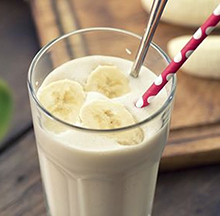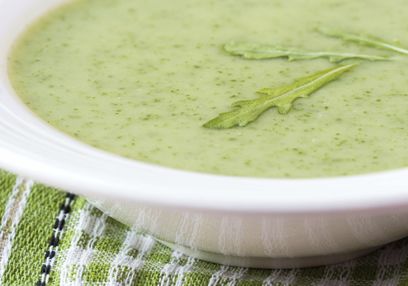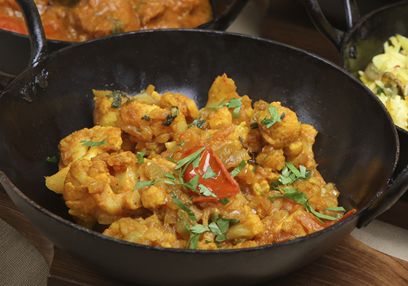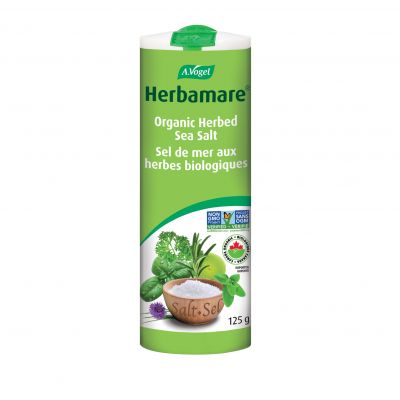Running on an empty stomach isn’t the best idea and neither is fuelling up on the wrong foods. Eating the right foods, at the right time, can not only help you run better and for longer, it can also help you avoid stomach cramps, dizziness and falling energy levels.
So what should you eat before a run?
Finding a balance between energy sustaining foods and foods that are easy to digest is the key for runners. An ideal pre-run meal or snack should be composed primarily of healthy carbohydrates, as well as a small amount of protein and healthy fats.
The glycemic index (GI) is a rating system for foods containing carbohydrates and which measures how quickly these foods are digested and how soon they affect blood sugar (glucose) after being eaten. The faster the body breaks these down and causes a rise in blood glucose, the higher the GI rating.
For runners, it’s important to eat foods containing low GI carbs, as these foods release energy slower and at a more sustained rate, preserving energy stores in muscles, allowing fat sources to be used and ensuring energy levels are higher for longer.
It is particularly important to be prudent in avoiding ALL high GI foods in the 20 minute window prior to exercise as in this window there can be a physiological effect attached to the drop in blood glucose.
Low GI foods & fibre
A lot of the low GI foods can also be quite high in fibre: it is necessary to find a balance between low GI foods and a low fibre content. Fibrous food can be hard to digest and can cause frequent visits to the bathroom before or even during a long run – this is particularly true on race mornings when nerves are running high and digestion is less efficient.
By all means include fibrous foods but keep quantities small and balance them with low GI foods which have a lower fibre content – this will be a learning process over time e.g. label reading and also a “feel “process, as fibrous foods make you feel fuller and more bloated.
Ideally, before a run, you don’t actually want to feel food “sitting” in your stomach as you would with lots of high fibre foods. Examples: oats are a great low GI food and have much less fibre than a bowl of All Bran. Raspberries, apples and pears with skin on are all great low GI foods but high in fibre. However, blueberries, dried apricots, bananas and oranges are all low GI and have less fibre.
The closer to your run, the less fibre you should eat – in a meal 4 hours pre-run, a larger meal containing more fibre can be consumed. However, 30 minutes before your run, you should avoid fibre altogether.
Timing is everything
No one likes that tired, weighed down feeling after a large meal, so imagine how it would feel if you had to run after such a meal.
So it makes sense not to stuff your face just before you run, but there are some general guidelines you can follow to ensure your food is properly digested before you put on your running shoes. As a rule of thumb: 150-200kcal for every hour before running.
- For large meals – wait 2 to 4 hours before running
- For light meals – wait 2 hours before running
- For light snacks – wait 30 minutes to 1 hour before running
These are general guidelines. Not everyone digests food at the same rate so it’s a matter of trial and error to find out how long it’s best for you as an individual to wait before you start running.
Going the distance
What you eat before you run can also largely depend on how long or how far you plan to run.
5K or under 60 minute runs
For runs which last less than 1 hour or up to a 5 mile distance at an easy pace, runners often find that they have enough stored energy to undertake this type of run on an empty stomach. But how can you guarantee your stored energy won’t fail you?
The best thing to do is to have a light snack, 30 minutes before your run to keep you energised throughout. Try to aim for about 15 grams of carbohydrates and low fibre in this pre-run snack.
Good foods before your short run:
- A banana
- 1 teaspoon of peanut butter
- A handful of dried apricots
- Granola bar
- Low fat yoghurt
10K or over 60 minute runs
For longer runs of over 60 minutes or up to 10k you need more fuel to ensure that you don’t tire out before you are finished. Try to aim for about 30 grams of carbohydrates in this pre-run snack or meal. Remember, the more you eat, the more time you need to wait before you start your run.
Good foods before your long run:
- Banana with peanut butter
- Baked sweet potato with tuna
- Red lentil soup
- Prawn salad
- Apple & Banana Smoothie
Morning runs
If you go for a short run first thing in the morning, it is usually not necessary to have breakfast beforehand as your glycogen stores should be enough to fuel your workout. Some people, however, do need that extra boost. If you do skip eating before your morning run, make sure you leave enough time afterwards to have breakfast.
It’s important that you eat within 30 minutes of finishing your run to allow your body to make use of the calories to replenish glycogen stores and rebuild muscles.
Good foods to eat before your morning run:
- ½ Banana
- A granola bar
- Handful of cereal
Foods to avoid before running
As well as knowing the right foods to help you run, it is also important to avoid the ones which will slow you down. As mentioned earlier, avoid high in fibre foods right before your run as these can often cause stomach upsets while running. Foods that are high in fibre can cause bloating after eating as they take longer to digest, so if you want to avoid feeling too full, uncomfortable and bloated, then it’s best to steer clear of or limit these foods before a run.
Also avoid foods which digest slowly such as high fat foods as these can also make your stomach feel weighed down, leaving you feeling tired and low in energy.
Caffeine is known to give you an energy boost so it is tempting to have a coffee before a run. It can, however, also cause stomach upset and diarrhoea - not something you want to have to deal with while you are out on a run, especially if there are no restrooms nearby.
And don’t forget to hydrate!
Make sure to drink water before and during a run, especially if it is a long one, to help replace fluids lost through sweat.
One last thing...
Remember everyone is different and what works for one person may not work for another. As mentioned before, it’s about finding the right balance that works for you, testing different meals and snacks and discovering what gives you the right amount of energy at the right time.
What do you like to eat before you run?






